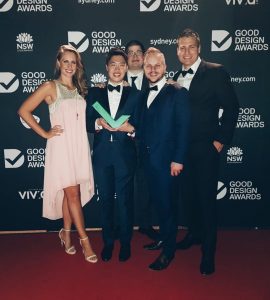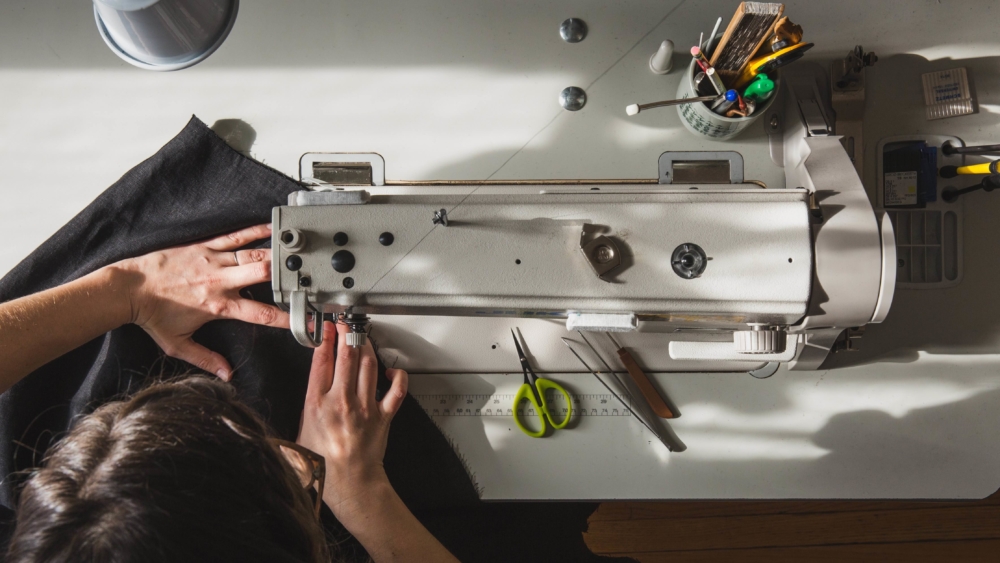Unless you’ve been living under a rock, you’d have heard that millennials are all about ethical fashion these days.
In fact, according to US Shelton Group’s latest “Eco Pulse” trending data, 90 per cent of millennials will buy from a brand whose social and environmental practices they trust, and 95 per cent of them will recommend that brand to a friend.
So why don’t millennials – those born between the 1980s and early 2000s – buy ethical fashion at the same rate? There is a gap between what they say and what they do.
Online store Thread Harvest’s Christian managing director, Davyn de Bruyn, believes the market has not not always met the consumer’s needs when it comes to ethical fashion. From his perspective, advocacy groups whose message is “Shame on you for buying fast fashion,” have left consumers asking “Well, what choice do I have?”
Davyn believes it is the industry’s responsibility – both the big brands and the marketplace – to provide ethical options for consumers. This is the reason Thread Harvest exists.
Thread Harvest is one of Australia’s largest collections of ethically made and sustainably sourced clothing. The designers whose products are sold through Thread Harvest have been curated for style, impact, cost and quality and scored with “Impact Badges” that help customers shop for brands that embody their personal values.
Thread Harvest’s Impact Badges earned the company the E-platform Award at the prestigious Australian Good Design Awards in a new category of Fashion Design earlier this month.
“Thread Harvest created Impact Badges to enable consumers to shop by the values that are most important to them,” the awards jury commented. “Empowering consumers in this way is an innovative example of how individual passion touch-points can inspire consumers to change the way they shop.”

Davyn wants to make it as easy as possible for people to re-orient themselves in a world that has a warped view of fashion. His role, he says, is to help people become ethical consumers, providing them with what they increasingly want.
What does that look like? Davyn says that in a world where people are time-poor and have competing priorities, it means removing barriers to finding products that align with consumers’ personal values. His goal is to make ethical clothes easy to find, competitively priced, of a high quality so that they endure and, of course, fashionable.
“Five years ago ethical fashion made you think of a brown paper bag,” he admits. “Now we’re making progress.”
“You need something? Buy it. But buy it for longevity. Know the story behind it, how it’s been manufactured.” – Davyn de Bruyn
Although Davyn’s aim isn’t a revolutionary overhaul of consumerism, he’s not unaware of its evils. Instead, he advocates for a “conscious consumerism” that subverts the culture of “fast fashion” and protects the people who have historically become its collateral damage. When asked whether his strategy leaves the underlying problem of consumerism unchallenged, Davyn shows it’s a subject he’s given plenty of thought to.
“You’re right – at the end of the day we’re still promoting products, we’re still encouraging people to buy,” he agrees, before going on to note that “clothing’s a necessity” in our society.
He explains that fashion is the one industry where there’s been price deflation, even as manufacturing costs rise. To some degree, this is the result of economies of scale, Davyn says, but he believes a greater reason is exploitation in the supply chain that has pushed the world’s most vulnerable people to the limit.
“We’re not saying ‘consume, consume, consume.’ We are saying ‘You need something? Buy it. But buy it for longevity. Know the story behind it, how it’s been manufactured.’
“By moving the direction that we’re moving, by putting the story behind it, it’s connecting people to their clothing.”
Davyn believes conscious consumerism rather than unconscious consumerism will put a brake on consumerism and give people who manufacture our clothes the opportunity to be paid fairly so they can support their families.
Davyn is remarkably gracious when I ask for his thoughts on Christian churches, artists and conferences that sell unethical products. He stresses he wants to resource them, make a safe space for them to learn about supply chain ethics, and would prefer to be a trusted consultant to churches looking to make changes than condemn or judge them.
That said, he believes even when churches are selling merchandise with the best intentions, they need to examine whether their product is contradicting the message they are preaching.
“Many wouldn’t have even asked the question, and wouldn’t even know that it’s an important question to ask.”

It’s a question Davyn had to face many years ago when potential investors asked him about the manufacturing process of the clothes he was selling. He was three years into starting his own label called Black to Black and was participating in a business acceleration programme called SEED.
Black on Black was a “Profit for Purpose” organisation and Davyn was a committed Christian. Yet when challenged over whether his product was “empowering people at one end of the process yet exploiting them at the other,” he realised he had to make some big changes.
Digging into the industry, he came across Thread Harvest. It had been established by two investors who recognised a need to bring together the increasing number of consumers who were asking questions about the manufacturing supply chain of clothes they bought, and the growing number of ethical brands that had a social justice cause attached.
“What we found was there was a beautiful commonality [between the two companies,]” Davyn says. And, in 2016, the two companies merged.
“Millennials could hardly be clearer about their priorities and concerns – and about how business’ priorities match up.” – Deloitte Millennial Survey 2018: the Australian cut
Davyn’s vision and skills make the business end of ethical fashion sound achievable. Yet the task ahead of him is not insignificant, particularly when it comes to millennials.
On the one hand, millennials are rabid consumers. In the US market, for example, millennials spend about $US600 billion a year, a figure that’s expected to grow to $US1.4 trillion over the next few years, which will make it 30 per cent of the US market.
On the other hand, they’re “fast fashion” offenders of the highest degree. A recent Australian study finds that 38 per cent of millennials purchased at least half of their clothes in the past 12 months, 24 per cent threw away clothes in the previous year because they were bored with it, and 16 per cent generally keep their clothes for less than two years before throwing them away.
It doesn’t end there. Past reports conducted by the US Shelton Group find that millennials fall behind other age groups when it comes to doing the “easier green activities.” Only 33 per cent of millennials say they adjust the thermostat to save energy (compared to 48 per cent of all people surveyed) and just 34 per cent recycle paper and aluminium cans (compared with 46 per cent overall).
But Shelton researchers have since posited a new theory for the gap between the ethics millennials profess and their actions. They say millennials know small personal actions won’t solve the huge problems facing our world, and are instead looking to companies to take big actions that will have a real impact.
The 2018 State of Fashion Report (which collates and analyses global data) puts it like this:
“With information and the ease of comparison at their fingertips, consumers are becoming less brand loyal: among millennials, two-thirds say they are willing to switch brands for a discount of 30 per cent or more. But while they are very price sensitive, they also base more of their purchasing decisions on whether a company’s practices and mission align with their values. This is a generation that has higher expectations on what a company should be able to deliver: convenience, quality, values orientation, newness – and price.”
Similarly, the “Australian cut” of Deloitte’s survey of 10,455 millennials in 36 countries released this year says:
“In last year’s survey report, we noted that millennials were ‘pro-business’ but expected more from leaders and corporations. This year’s respondents send a strong signal that those higher expectations are not being met – and that the ‘pro-business’ sentiment has deteriorated. Rather than accepting that as a negative, we view an opportunity for leaders to fill what younger workers see as a stark leadership void. Millennials see business leaders having a more positive impact than religious or political leaders.”
When asked whether particular groups were having a positive or negative impact on the world, millennials delivered a harsh assessment of both political and religious figures. The judgment of political leaders was particularly brutal, with 19 per cent of younger workers describing their impact as positive and 71 per cent describing it as negative. In contrast, business leaders were seen as having a positive impact by 44 per cent of the millennials surveyed.
“That’s why now is the time for business leaders to prove themselves as agents of positive change. Millennials could hardly be clearer about their priorities and concerns – and about how business’ priorities match up,” the report concludes.
All of this is good news for Thread Harvest’s Davyn, whose hopeful perspective has him convinced the fashion industry “isn’t a world going to hell but a hellish industry” – an industry he’s committed to seeing God’s kingdom established right in the middle of it, one ethical step at a time.
Email This Story
Why not send this to a friend?




